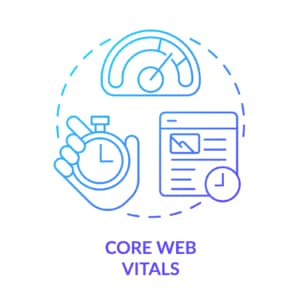Establishing a robust digital presence has become an essential aspect of law firms’ success. The way potential clients seek legal services has transformed significantly due to the omnipresence of online platforms and the evolving nature of consumer behavior. To thrive in this digital era, law firms must adopt and execute effective marketing strategies tailored to the nuances of the legal profession. Search Engine Optimization or SEO for personal injury lawyers can help you stand out against your competitors.
The Power of SEO for Personal Injury Attorneys
In a time where the internet serves as the go-to source for information, SEO for personal injury attorneys becomes not just beneficial but essential. Why? Because it ensures that your law firm’s website appears prominently when individuals search for legal services related to personal injury cases.
Understanding SEO
SEO is the process of optimizing a website to rank higher in search engine results, thereby increasing visibility and organic (unpaid) traffic. For personal injury attorneys, this means fine-tuning your website to attract individuals seeking legal counsel for accidents, injuries, or related claims.
Where is the Best Place to Advertise a Law Firm?
When considering the best place to advertise a law firm, especially for personal injury attorneys, online platforms take precedence. Here’s why:
1. Search Engines (Google, Bing, Yahoo)
Paid Advertising (PPC): While SEO focuses on organic traffic, pay-per-click (PPC) advertising can complement SEO efforts. Google Ads, for instance, allows you to bid on keywords related to personal injury law, ensuring your firm appears at the top of search results.
Organic Search Results: SEO strives to enhance your website’s visibility in organic search results. Ranking high here establishes credibility and trust, as users often trust organic listings more than paid ones.
2. Social Media Platforms
Content Sharing: Social media platforms like LinkedIn, Facebook, and Instagram offer opportunities to share informative content. This is also where you can engage with your audience and drive traffic back to your website.
Targeted Advertising: Utilize targeted advertising on social media platforms to reach specific demographics interested in personal injury law services.
3. Legal Directories and Review Sites
Listing Services: Platforms like Avvo, FindLaw, and Yelp can serve as directories where potential clients search for legal services. Ensure your law firm is listed accurately and optimized for visibility.

Why SEO Stands Out
SEO stands out as an advertising method for personal injury attorneys due to its long-term effectiveness, ability to build trust and credibility, precision in targeting potential clients, cost-efficiency, and adaptability in a dynamic online landscape. By investing in SEO, law firms can establish a strong online presence, attract qualified leads, and solidify their position as trusted authorities in the legal domain. Amidst these advertising options, SEO for personal injury attorneys offers distinct advantages:
- Targeted Traffic
SEO ensures that your website appears in front of individuals seeking legal counsel for personal injury cases. These are highly qualified leads already expressing interest in your services. Local SEO is an important aspect of targeting clients near you who are seeking legal services.
- Credibility and Trust
Ranking high in organic search results signals credibility and authority. Potential clients seeking your services are more likely to trust law firms that appear at the top of search engine results.
- Long-Term Benefits
While pay-per-click ads stop showing once the budget runs out, SEO efforts have lasting effects. Well-executed SEO strategies can provide a steady stream of traffic and leads over time.
- Cost-Effectiveness
Compared to PPC advertising, SEO can be more cost-effective in the long run. Once your website ranks well organically, the traffic it generates doesn’t require ongoing payments for clicks.
Implementing SEO for Personal Injury Attorneys
To effectively harness the power of SEO, personal injury attorneys can take these steps:
Keyword Research: Identifying and using relevant keywords (like “personal injury attorney in [Miami, FL”) throughout your website’s content is crucial. These keywords should reflect what potential clients are searching for when looking for services. 3rd party tools like Mangools are a great way to start finding keywords.
Content Creation: Creating high-quality, informative, and engaging content is key. Blogs, articles, case studies, FAQs, and legal guides tailored to your practice area not only attract visitors but also position you as an expert in the field.
Local SEO: For lawyers targeting local clients, optimizing for local search is essential. This includes having consistent business information across directories, creating localized content, and maintaining a Google My Business profile.
Link Building: Acquiring quality backlinks from reputable websites in the legal or related fields boosts your website’s authority and credibility in the eyes of search engines.
Website Optimization: Ensuring your website is user-friendly, mobile-responsive, fast-loading, and equipped with clear calls-to-action enhances user experience and encourages engagement.
Invest in SEO Services with Simplified Consulting
When determining the best place to advertise a law firm, the digital landscape reigns supreme. However, among the various online marketing strategies available, SEO for personal injury attorneys stands out as a cost-effective, targeted, and credibility-building approach. By investing in SEO efforts, law firms specializing in personal injury cases can increase their online visibility, attract qualified leads, and establish themselves as trusted authorities in the field of law.
Are You Ready to Watch Your Law Firm Grow?
Drive more client traffic and cases to your firm by using Simplified SEO Consulting! We’re ready to help your personal injury law firm grow by discovering the key to online success with SEO. Don’t miss out on potential clients, follow these simple steps:
- Schedule a consultation here!
- Meet with one of our dedicated SEO Specialists.
- Watch your personal injury law firm flourish!
Other Services Simplified SEO Consulting Offers:
Simplified SEO Consulting offers a range of services to help you improve your website’s online presence. We offer Done For You SEO Services and DIY Online SEO Courses, which are customized to enhance your search engine rankings and attract your ideal clients. We also have a 12-week Done With You Intensive Program for comprehensive training. Our Content Networking service can help you boost your online presence and attract more of your ideal clients. Check out our blog for more tips and guides on SEO.

About the Author
Olivia Ferguson graduated from Central Michigan University with her Bachelor’s degree in Social Work. With a prior history in crime victim advocacy, this brought her great knowledge of the legal justice system and the mental health profession. Connecting those tools together, her goal is to help individuals reach their ideal clients by improving their online presence and rankings with SEO.

















 In the vast and ever-evolving realm of digital marketing, SEO (
In the vast and ever-evolving realm of digital marketing, SEO ( On-Page SEO Vocabulary
On-Page SEO Vocabulary
 NAP (Name, Address, Phone Number): Basic business information like hours, locations, addresses, etc. that must be consistent and accurate across various online platforms, directories, and websites
NAP (Name, Address, Phone Number): Basic business information like hours, locations, addresses, etc. that must be consistent and accurate across various online platforms, directories, and websites Classifying Your Site Audit Results
Classifying Your Site Audit Results While knowing the cause of each issue is invaluable, it still may not be worth the time to go through and fix every single warning, error, and critical error on the site. There are many different unique warnings and errors that may occur on your site, so we won’t be addressing every issue in this post. Each concern has a description of why the error/warning is occurring, so making use of that resource will be important when reviewing your site audit.
While knowing the cause of each issue is invaluable, it still may not be worth the time to go through and fix every single warning, error, and critical error on the site. There are many different unique warnings and errors that may occur on your site, so we won’t be addressing every issue in this post. Each concern has a description of why the error/warning is occurring, so making use of that resource will be important when reviewing your site audit.  In short, it’s not that simple. As a general rule, yes it will be best to fix all critical errors that occur on your site audit. But, there are also some errors that may need to be addressed like broken resources. In the end, it is worth taking your personal situation into account so you can effectively use your time to address the issues that affect your site most.
In short, it’s not that simple. As a general rule, yes it will be best to fix all critical errors that occur on your site audit. But, there are also some errors that may need to be addressed like broken resources. In the end, it is worth taking your personal situation into account so you can effectively use your time to address the issues that affect your site most. 




